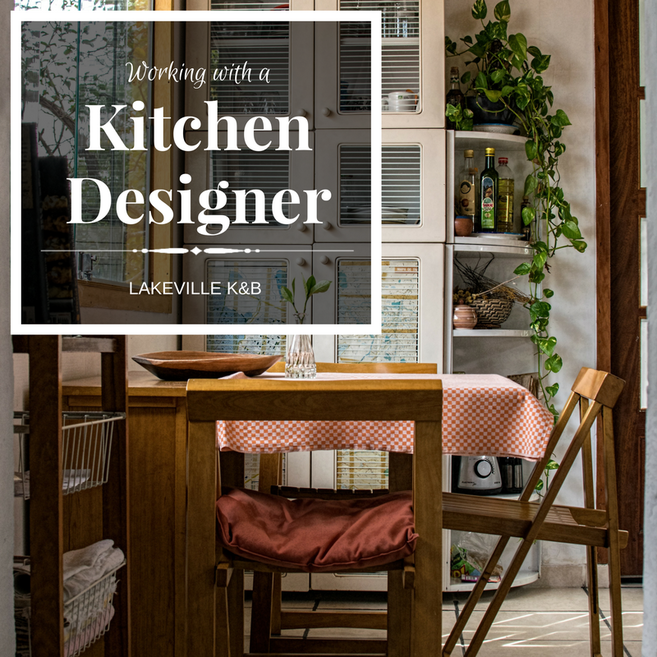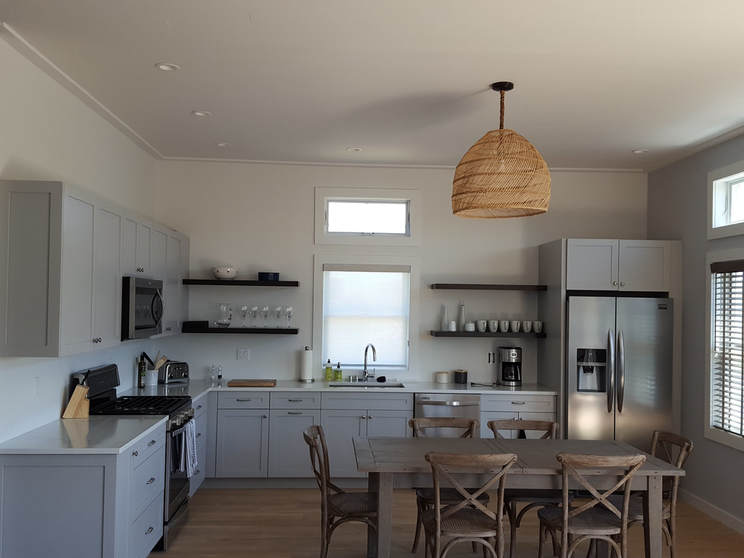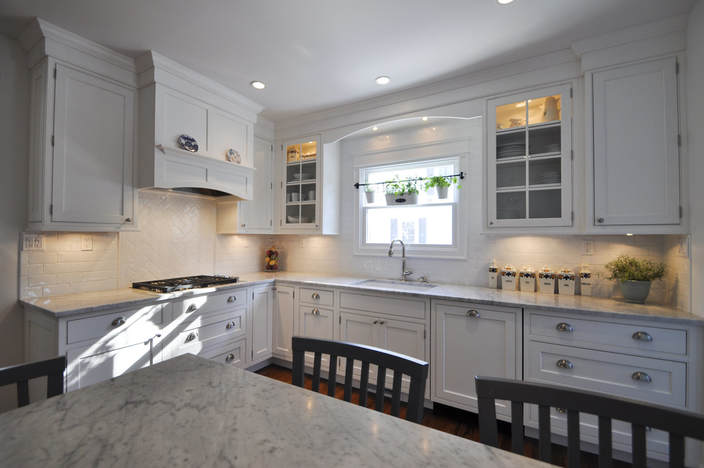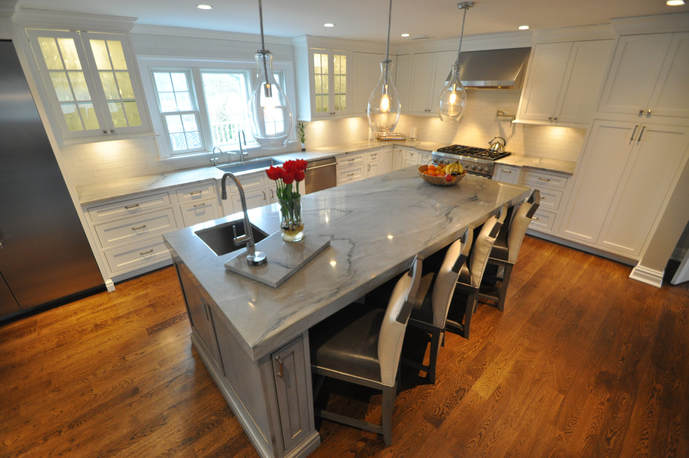|
If you're undertaking a kitchen remodel project, seeking the help of a professional kitchen designer can help you smooth out the kinks in the design process and vastly improve your overall experience. Here, Lakeville Kitchen and Bath lists our tips for finding and working with your kitchen designer to ensure you create the kitchen of your dreams. Why Hire a Kitchen Designer?So you’ve decided to remodel your kitchen. But why hire a kitchen designer? Whether your kitchen needs a minor facelift or a full-scale gut job, planning a remodel can often prove to be a rather involved process. From deciding on cabinets and appliances, to determining your layout, to working out the plumbing and electric, there are innumerable details that go into any kitchen project—needless to say, soliciting the help of a professional kitchen designer can really help take some stress off a homeowner. Kitchen designers have access to a whole array of professional planning tools and design software that is unavailable to most homeowners, and they’re in-the-know on all the latest design trends and new materials. Most importantly, a kitchen designer is specially trained in the art of visualizing a space that is as functional as it is beautiful, maximizing available space and resources to make your kitchen as efficient and comfortable as possible. Having an expert by your side to walk you through the minutiae and technical quirks of designing your kitchen will save you exorbitant amounts of time, money, and energy. Finding the Right DesignerThere are a number of professionals who are qualified to design a kitchen. Cabinet and appliance suppliers, kitchen contractors, architects, builders, and interior designers are some of the most common. Knowing the type of kitchen designer you need for the job will help you narrow down your search; if, for instance, you need to order cabinetry, you are probably best off seeking the expertise of a kitchen designer. But keep in mind: not all professionals have the specific knowledge needed to help you to your dream kitchen, and experience and skill level can vary from trade to trade and from individual to individual. Check for reviews and recommendations on building, trade, and designer directories, and always ask your prospective designer for their portfolio. Know your BudgetMaintain an idea of what you are willing and able to spend, and be upfront with your designer about your budget from the beginning. Your kitchen designer has the knowledge and expertise to stretch your dollar as far as it will go, so don’t be discouraged if the kitchen of your dreams seems beyond your grasp. That being said, homeowners should also be realistic; miracles can’t always happen on a shoestring budget, but a good designer will be able to work within your constraints to give you the most efficient and attractive space as possible. Do your ResearchIf you’re planning a remodel, more than likely you already have an idea of what works in your kitchen and what doesn’t. Think about how you would like your kitchen to flow; what materials, appliances and amenities you would like to add; and what design styles most appeal to you. Find pictures on home design blogs or in magazines to share with your designer. The more information you can communicate to your designer during your initial interview, the smoother your kitchen remodel process is likely to go. Stay Flexible and Be Prepared for Unforeseen ChangesThe kitchen designer is trained in maximizing appeal and function, and consequently he or she may discover problems or conflicts in your plans that you had not anticipated. Or, on the other hand, they may introduce you to new materials or layout solutions that you never would have considered. Designing a kitchen is a fluid and collaborative process, and homeowners will quickly discover that the final product almost never matches their initial plan exactly. Keep in mind that it’s the kitchen designer’s job to look out for any glitches in your design that may cause you headaches down the road, so they may recommend you sacrifice certain aesthetic qualities for sake of function. But be open to their suggestions—their expertise is precisely the reason you hired them in the first place. Once your plans are finalized are your materials are ordered, though, it can be difficult to make changes. This can not only prolong the kitchen design process, but it often comes at an expense to homeowners, so don’t be afraid to speak up as much as possible during the planning stages. However, that’s not to say that changes can’t be made in cases of necessity—your designer can work with suppliers to help ensure your kitchen design comes out just as you intended. Want a one-of-a-kind kitchen all your own? Connect with us today and start designing with a Lakeville Kitchen and Bath specialist. |
Search TopicsCategories
All
Follow Us |
|
Phone Numbers
Farmingdale:
(631) 957 - 6800 Smithtown
(631) 656 - 0936 |
Showroom Hours
|
Email & Social
|
Copyright © 2023 Lakeville Kitchen & Bath.
All Rights Reserved. Privacy Policy
Quality Cabinetry Since 1935.
All Rights Reserved. Privacy Policy
Quality Cabinetry Since 1935.





 RSS Feed
RSS Feed

